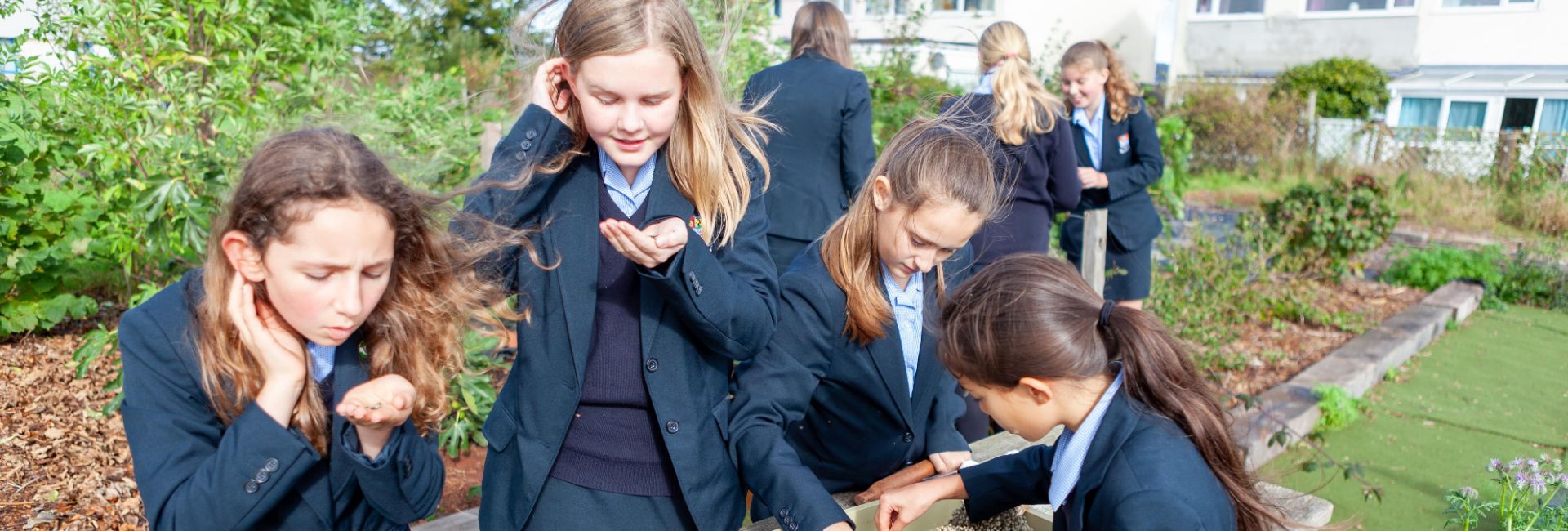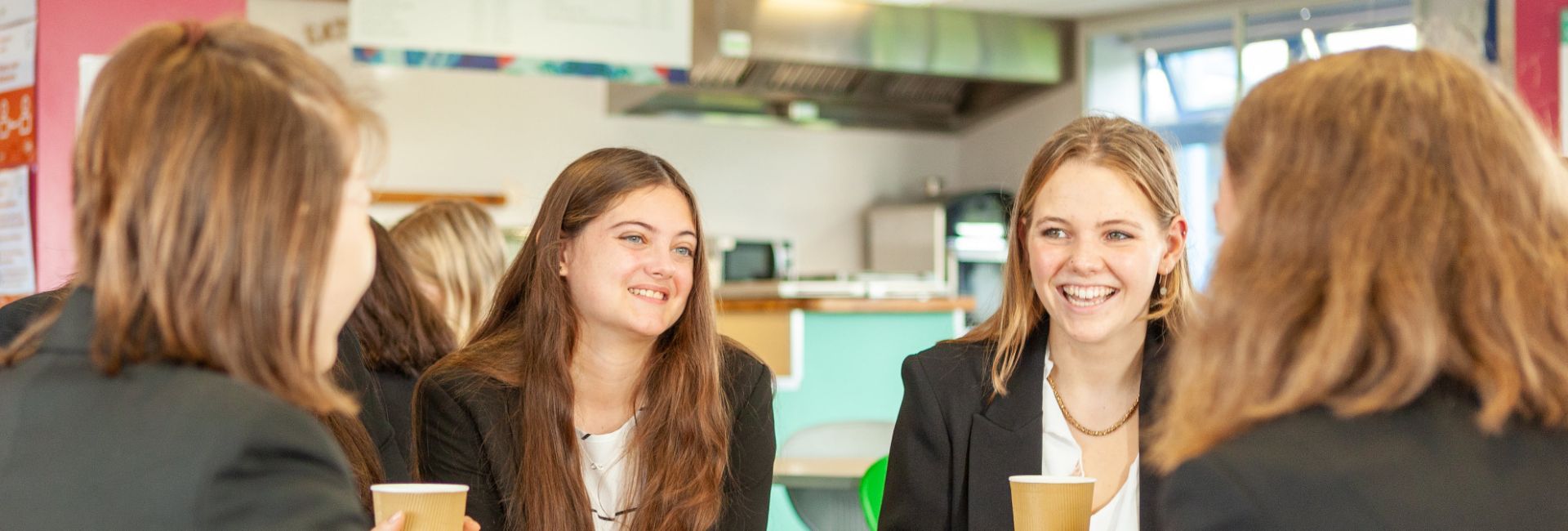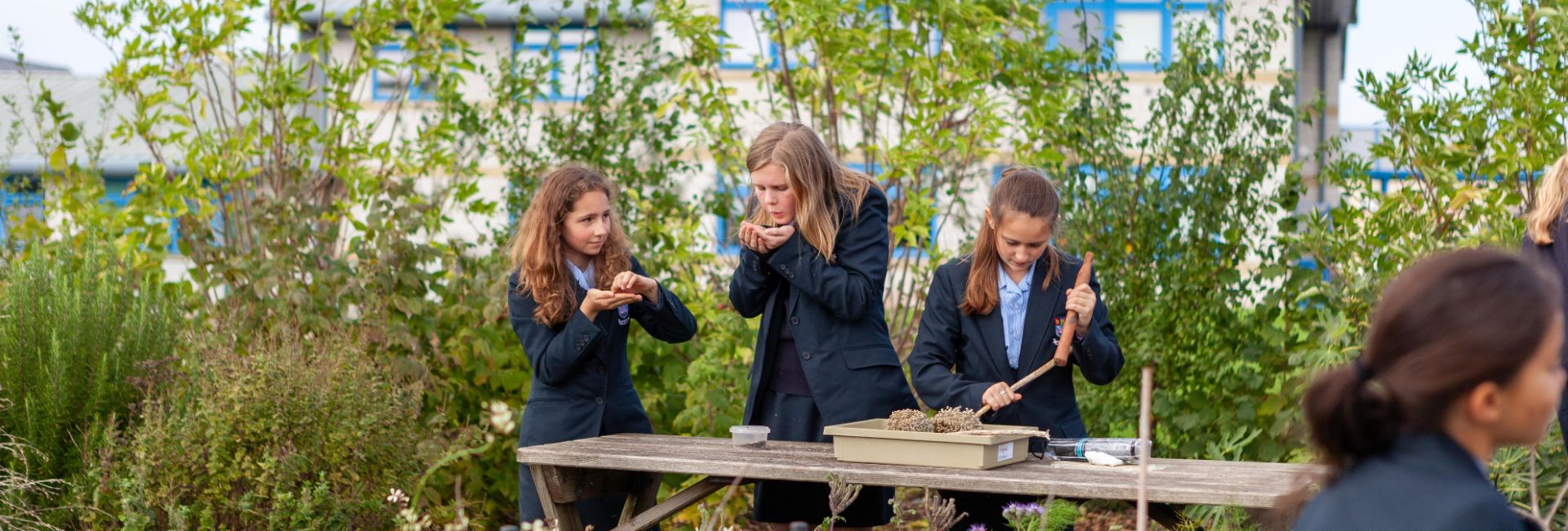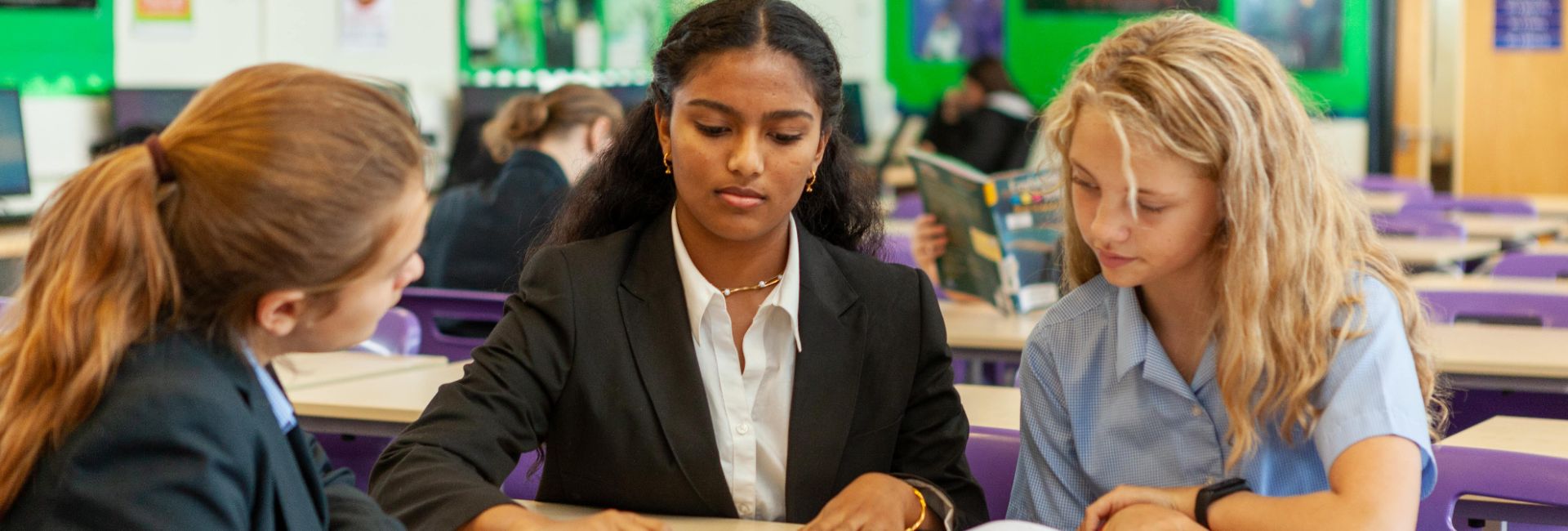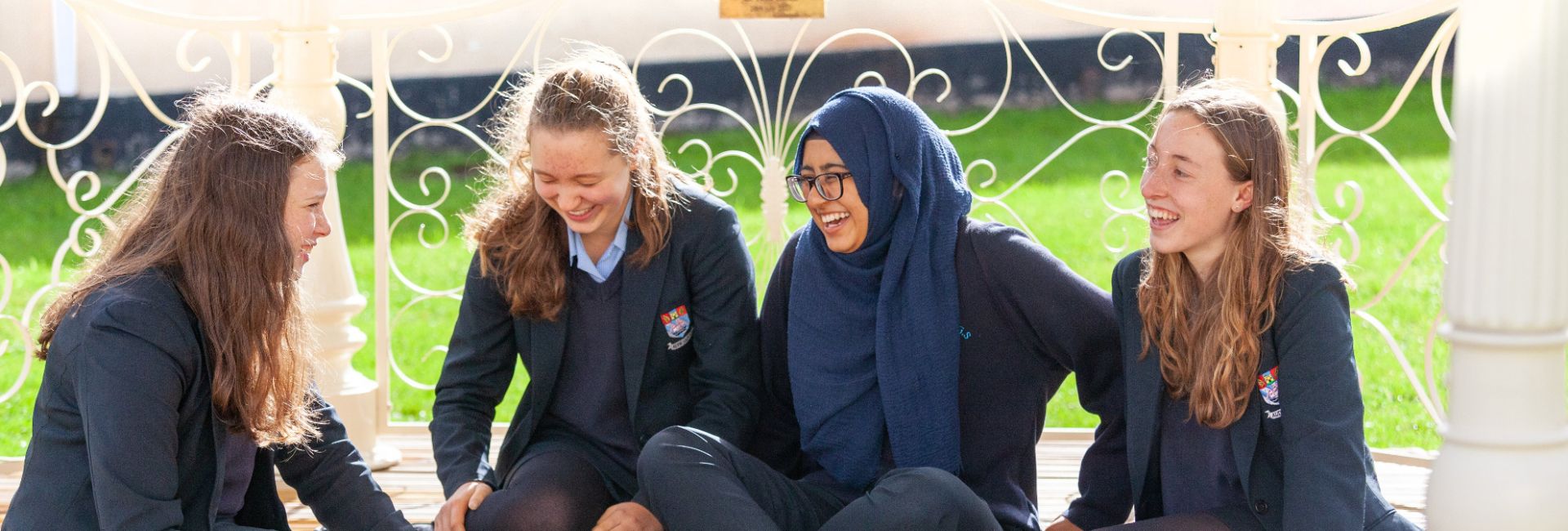KS3 Overview
At KS3, students engage with a variety of units of work which aim to consider how religion is dynamic and must adapt to contemporary moral issues. We also look at some philosophical questions such as 'What is truth?' and 'Is there any convincing evidence for God’s existence?' In Year 9, students start GCSE Religious Studies.
Building on KS2 and preparing for KS4…
We start Year 7 with a unit called the A-Z of religion which introduces students to various religious, philosophical and ethical issues. The unit gives us the opportunity to find out what students already know from KS2; furthermore, it lays a foundation for the rest of their studies at TGGS, as each topic is revisited at KS3 and/or KS4. Throughout KS3, we build the skills that are necessary for GCSE Religious Studies; these include being able to explain the impact of belief on a person’s actions, as well as being able to explain and evaluate beliefs.
KS3 Assessment
We start each lesson with some form of recap of previous learning. In the lesson, through questioning and low stakes quizzes, we check understanding. In Years 7 and 8, assessments may take the form of a variety of short and longer answer tasks. In Year 9, the assessments are in the style of GCSE Religious Studies exam questions.
KS3 Content
|
Y7 Content Autumn |
Students start Year 7 with a unit on the A-Z of religion. This introductory unit recaps prior learning and introduces a variety of religious, philosophical and ethical issues which are revisited later in KS3 and KS4. |
|
Y7 Content Spring |
Students learn about Sikhi beliefs and practices in a unit called 'How are Sikh teachings on equality and service put into practice today in the UK?' |
|
Y7 Content Summer |
In the summer, students build on prior knowledge of Jesus to consider how Christians and non-Christians might view the life and teachings of Jesus. This is followed by a unit looking at non-religious beliefs, such as Atheism, Humanism and Agnosticism. |
|
Y8 Content Autumn |
We start Year 8 with a unit 'What is truth?' considering philosophical questions about knowledge and the relationship between science and religion. This is followed by a unit considering how religious and non-religious people might make moral decisions. |
|
Y8 Content Spring |
Students will learn about how Buddhist beliefs impact on issues relating to organ donation. This is followed by looking at philosophical arguments for and against God’s existence and an independent study of a cult or minor religion. |
|
Y8 Content Summer |
This term, students consider the benefits and challenges of being a Muslim in the UK. This unit was co-written by Muslim students at TGGS. Finally, students look at religious attitudes towards environmental and animal rights issues. |
|
Y9 Content Autumn |
Students start GCSE Religious Studies. Crime and Punishment - In this unit we study religious (primarily Christian) and non-religious views on the aims of punishment, the causes of crime, prison, corporal punishment and capital punishment Christian beliefs – In this unit we study key Christian beliefs such as the nature of God, the problem of evil, the life and teachings of Jesus, life after death and salvation. |
|
Y9 Content Spring |
Human Rights and Social Justice - In this unit, we study religious (primarily Christian) and non-religious views on social justice, human rights, discrimination (racial, gender, positive), wealth, poverty and exploitation. |
|
Y9 Content Summer |
Jewish beliefs – In this unit, we look at some key Jewish beliefs including beliefs about God, covenants with God, key moral principles, the problem of evil, life and death and the sanctity of life. |
Useful links & resources for KS3:
Religious Studies KS3: A-Z of Religion and Beliefs - BBC Teach


